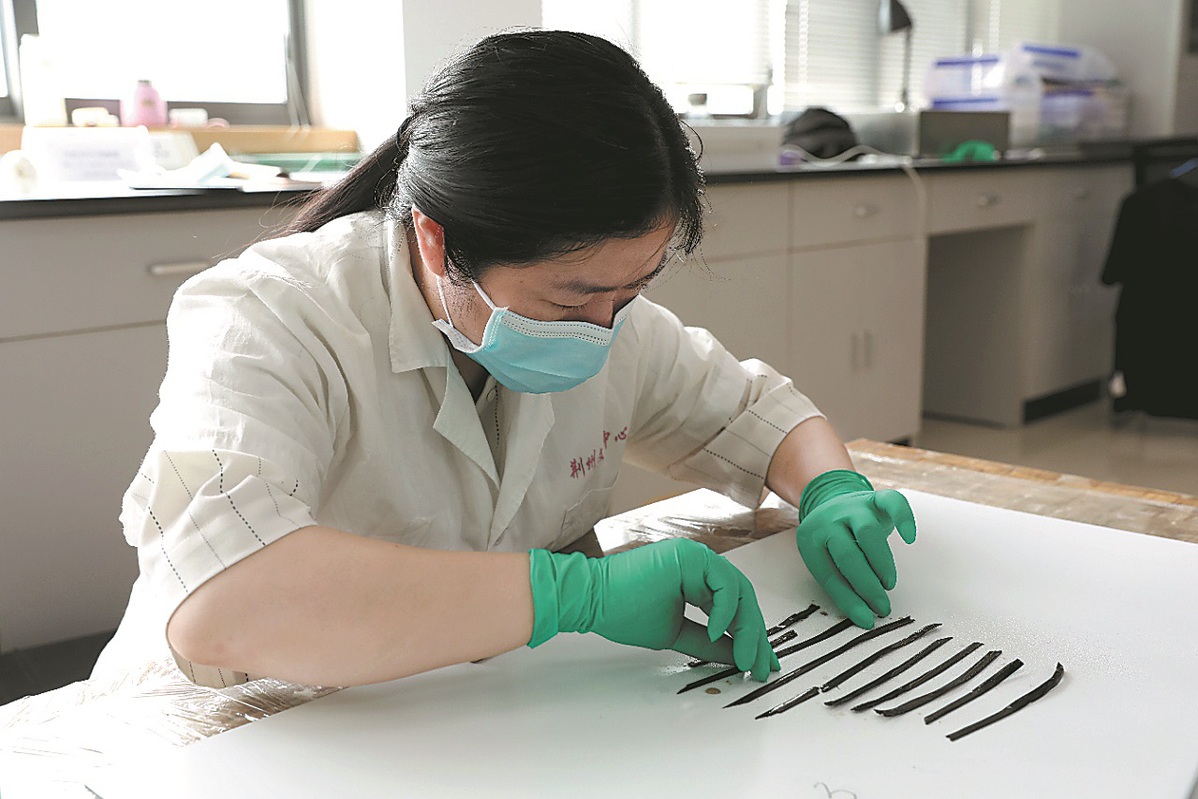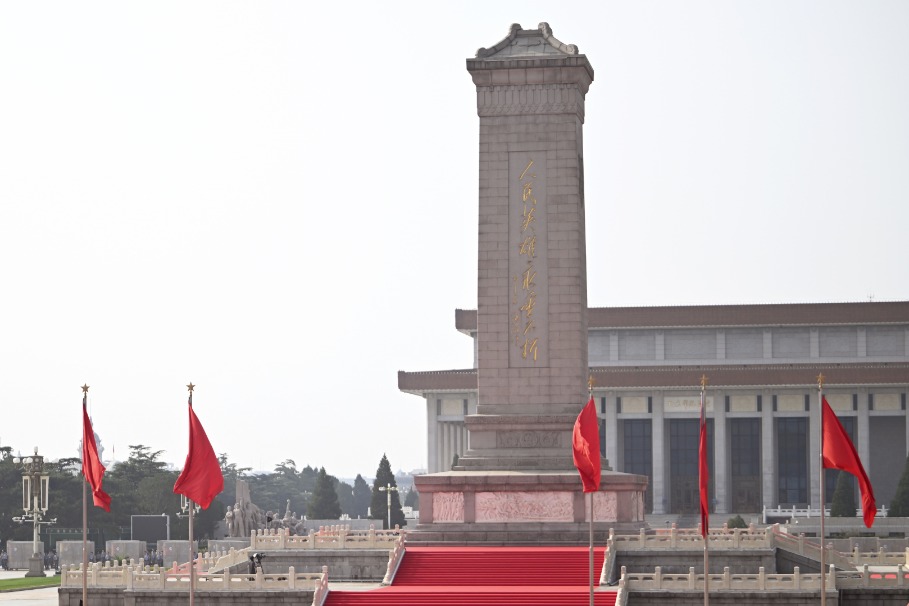Bamboo slips reveal Warring States life
By Wang Kaihao | China Daily | Updated: 2023-12-22 09:23

Records from Chu state found in Hubei tomb back up history books
Documents found in a 2,300-year-old tomb in Hubei province have helped to decode the history of Chu, a powerful vassal state during the Warring States Period (475-221 BC).
Archaeologists excavated nearly 4,000 intact bamboo record-keeping slips, known as jian in Chinese, from the tomb at the Qinjiazui graveyard site in Jingzhou, Hubei, the National Cultural Heritage Administration told a news conference in Beijing on Thursday.
Another 1,200 to 1,500 slips could be pieced together in follow-up restoration, said Yang Kaiyong, an archaeologist from Jingzhou Museum who is in charge of the excavation. An estimated 30,000 characters of typical Chu style were found on the slips.
It is the largest discovery of jian relics from a Warring States Period tomb belonging to the Chu state, Yang added.
Lasting for about 800 years, the Chu state ruled a vast area along the middle and lower reaches of the Yangtze River in its heyday until it finally yielded to Ying Zheng, who later united China and became the first Chinese emperor, Qinshihuang, in 223 BC.
Preliminary studies suggest the tomb dates back to between 369 and 329 BC.
Before paper was invented, jian, usually made of wood or bamboo, were a major form of documentation in China.
"The records cover a wide range of themes, like arts, classics of various philosophical schools, poetry, mathematics and medical prescriptions," Yang said. "They provide precious materials for studies of history and thoughts before the Qin Dynasty (221 to 207 BC) united China."
Much of the material on the slips offers crucial evidence that backs up history books.
For example, Shangshu, one of the "five classics" of Confucianism, is a prose collection attributed to rulers in early Chinese history. It is considered a cornerstone of Chinese political philosophy.
Though it was thought to have been compiled during the Western Zhou Dynasty (c.11th century-771BC), wars and sabotage disrupted transmission of the classic around the time of Qinshihuang. Many of the chapters people see today are based on later oral accounts. However, one famous chapter about penal system reform by the Western Zhou was found on 35 slips in the newly excavated tomb.
"It proved the version we see today is basically the same as this unearthed text despite some variations," Yang said. "We can also see how it influenced people's thinking then."
Wang Zijin, a professor at Northwest University in Xi'an, Shaanxi province, said the discovery had great significance for understanding China's legal system in ancient times.
Yang added that many other historical events mentioned in the slips were recorded in history, but people now have detailed descriptions thanks to the new findings.
"We can reconstruct historical scenarios in a vivid way," he said.
Qinjiazui graveyard is about 1 kilometer from the Jinan city ruins, once the Chu state's capital. To researchers' surprise, Tomb No 1093 offered key findings despite being the resting place of someone of relatively low status, indicating its occupant was probably a plebeian.
"But it raised an interesting question: What kind of plebeian would be buried with so many written classics?" Yang said, adding that maybe the tomb belonged to an aristocrat who had fallen on hard times.
For archaeologists, the bamboo slips not only help enrich understanding of the grand history of rulers and politicians, but also offer perspectives on ordinary people's everyday life.
On some slips, they found fragments of multiplication tables, which Yang said was the oldest evidence of its kind ever found in China. Before the discovery, the earliest such archaeological finding was from the Qin Dynasty, more than a century later.
Qi Dongfang, a professor at Peking University, highlighted the discovery of prose about raising horses.
"As horses play a key role in human civilization, this precious text inspires us to think of the relationship between human and horse, which is also important in a global perspective," Qi said.
Unlike the Qin, the final winner of the Warring States Period, which is known for its rigid system and order, the Chu, one of the Qin's major rivals, created a different cultural ethos highlighting imagination and a colorful life.
"The Chu contributed many romantic spirits to Chinese civilization," said Liu Qingzhu, a researcher with the Chinese Academy of Social Sciences' Institute of Archaeology. "Putting the new findings in a grand picture studying various fields, even including local culture today along the Yangtze River, we may gain more understanding."
























